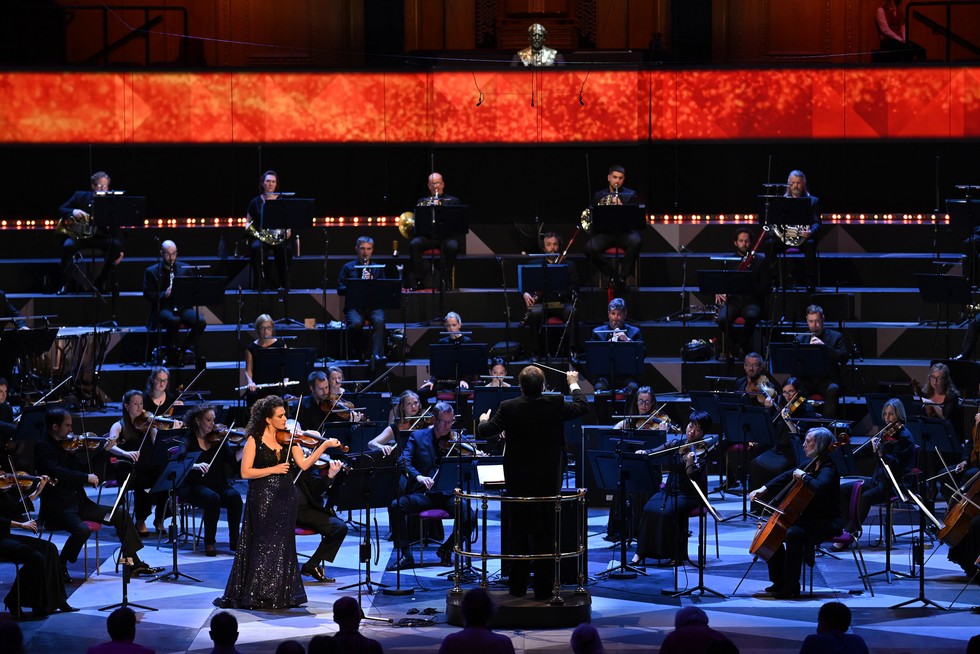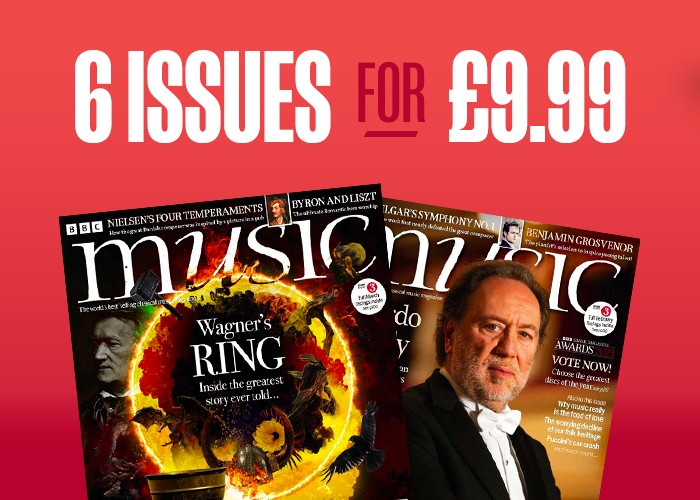BBC will look at alternatives to reducing its orchestral posts
Following plans for a 20% cut in full-time posts at the BBC Symphony, BBC Concert Orchestra and BBC Philharmonic, the corporation will examine alternative funding solutions

The BBC has made a further statement about the funding of its three English orchestras, following its recent announcement that full-time posts across all three ensembles would be reduced.
As we reported in March, the corporation announced that salaried posts across its three English orchestras – the BBC Symphony, BBC Concert Orchestra and BBC Philharmonic (pictured above) – would be reduced by around 20 per cent through a voluntary redundancy programme, with a greater focus on employing freelance players.
That news came as part of a new BBC strategy for classical music, which aims 'to strengthen the BBC's public purpose for classical music, delivering the best music to a wider audience, with a significant new investment in music education'.
The strategy's other headline was the planned closure of the BBC Singers (pictured), bringing with it the loss of around 20 full-time posts. Based at BBC Maida Vale Studios in London, the choir is one of the six BBC Performing Groups and features in live concerts, radio transmissions, recordings and education workshops, including annual appearances at the BBC Proms.
However, since then the BBC has suspended its decision to close the BBC Singers. The corporation is looking at alternative funding solutions for the much-loved choir, and has confirmed that the Singers will perform at the 2023 BBC Proms.
Like that decision, today's statement on the three English orchestras seems to indicate appears to show that the BBC will look for funding alternatives to the proposed redundancies across the three English orchestras.
It reads:
'Following our recent discussions, we want to confirm that, whilst the BBC needs to make savings, we are committed to working with the Musicians’ Union to explore alternatives to the proposed 20% post closures in the English Orchestras.
'These alternatives will look to create sustainability for our Performing Groups and to deliver the recommendations of the 2022 Classical Review – which are outlined below:
- We will collaborate more with partners across the UK
- We will invest more in education
- We will do more to open up the classical sector as a place to work
- We will innovate to bring classical music to new audiences
'In exploring alternative proposals, we will also invite independent experts from across the sector to work with us and the Musicians’ Union.
'In parallel, we remain committed to consulting the Musicians’ Union and other BBC unions on progress regarding the alternative models being proposed for the BBC Singers.'
The Independent Society of Musicians has responded to the BBC statement. Commenting, Independent Society of Musicians Chief Executive Deborah Annetts said, ‘On the face of it, this announcement looks like a positive move from the BBC, but we will need to see the detail to understand fully how this will impact on the long-term future of the BBC Performing Groups.
'There has been an incredible international public outcry about the BBC’s plans to axe the BBC Singers and orchestral jobs which has undoubtedly played a large part in today’s announcement. We remain concerned about the future of the BBC Singers.
'It is our view that the BBC should take the step of guaranteeing their future within the auspices of the BBC, funded publicly by the BBC.’
Authors

Steve has been an avid listener of classical music since childhood, and now contributes a variety of features to BBC Music’s magazine and website. He started writing about music as Arts Editor of an Oxford University student newspaper and has continued ever since, serving as Arts Editor on various magazines.




